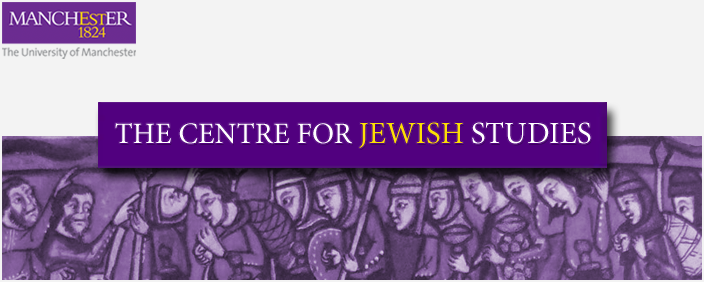1. Manchester Jewry, Commerce, and Refugees
The Jewish community in Manchester was founded in the 1780s, just as the city was developing as a centre of business and trade. Drawn in by the opportunities offered to them in the textile industry in particular, Jewish immigrants settled down easily in the "great provincial centre of tolerance, liberalism, commerce and culture". By the turn of the twentieth century, Manchester’s Jewish population of 35,000 made it the largest such community outside London.
 As elsewhere in Britain, however, most Jewish families struck roots in Manchester during the period 1881–1914, that is, from the time of the Russian pogroms and the mass exodus of Eastern European Jews until the tightening-up of British immigration laws at the start of the Great War. The majority of these Ashkenazim were working class and brought with them a devotion to Orthodox Jewish practice and education. Some also brought with them the early Zionism that had begun to flourish in Russia and Eastern Europe. A few were radical socialists.
As elsewhere in Britain, however, most Jewish families struck roots in Manchester during the period 1881–1914, that is, from the time of the Russian pogroms and the mass exodus of Eastern European Jews until the tightening-up of British immigration laws at the start of the Great War. The majority of these Ashkenazim were working class and brought with them a devotion to Orthodox Jewish practice and education. Some also brought with them the early Zionism that had begun to flourish in Russia and Eastern Europe. A few were radical socialists.
 Along with the Ashkenazim, most of whom worked in the so-called sweat-shops (small stores and factories for the tailoring and water-proof garment trades), there were also Sephardim (Spanish and Portuguese Jews) living in Manchester. These tended to be wealthier than their East European brethren, and many exported textiles produced in the city to South Africa, South America and the Levant.
Along with the Ashkenazim, most of whom worked in the so-called sweat-shops (small stores and factories for the tailoring and water-proof garment trades), there were also Sephardim (Spanish and Portuguese Jews) living in Manchester. These tended to be wealthier than their East European brethren, and many exported textiles produced in the city to South Africa, South America and the Levant.
For both groups, the centre of communal life was the synagogue and the main form of Jewish self-expression was charitable work. Men such as Nathan Laski and Charles Dreyfus, successful businessmen who were respected in both Jewish and non-Jewish eyes, typified the communal leadership of Manchester in the early twentieth century.
__________________________
IMAGE AND DOCUMENT CREDITS: Inwald Family (© Manchester Jewish Museum): This picture was taken in 1904 in Odessa, while the family originates from Bedzin, Poland. This branch of the family finally found the way to UK and USA, and the other part stayed in Poland. There are still members of this branch of the Inwalds in London. (Thanks to A. Borejdo).Waterproof workers (© Manchester Jewish Museum) Full reference: Sources.



